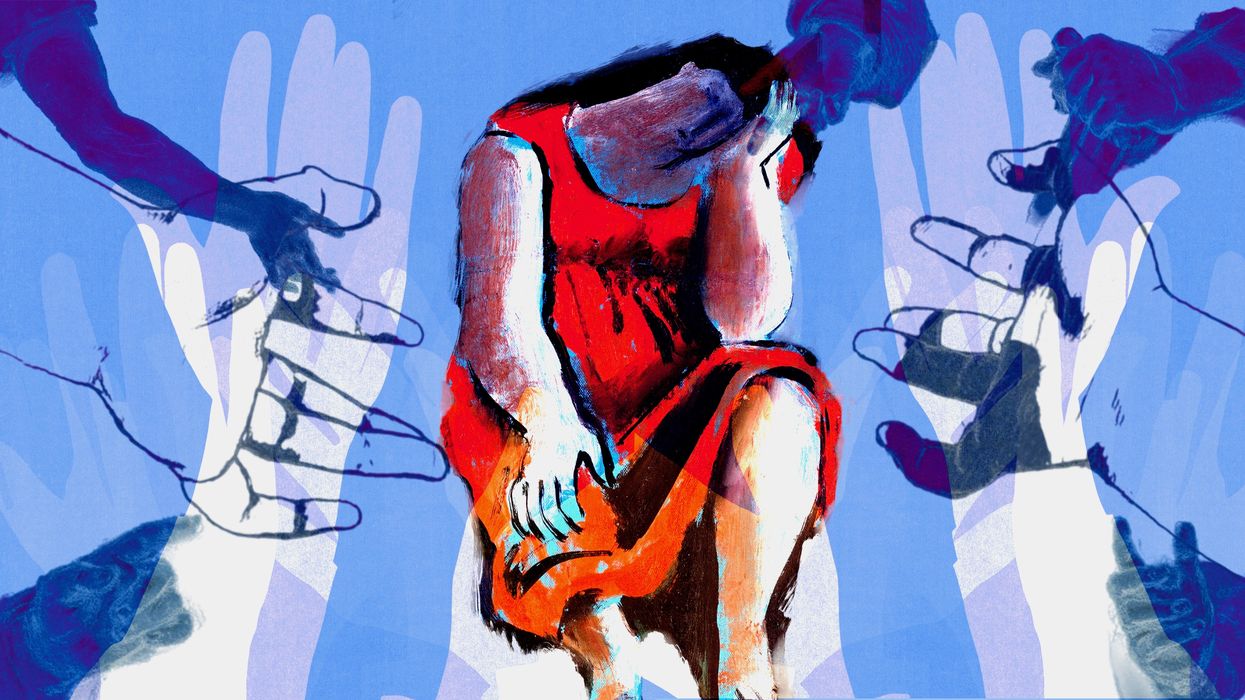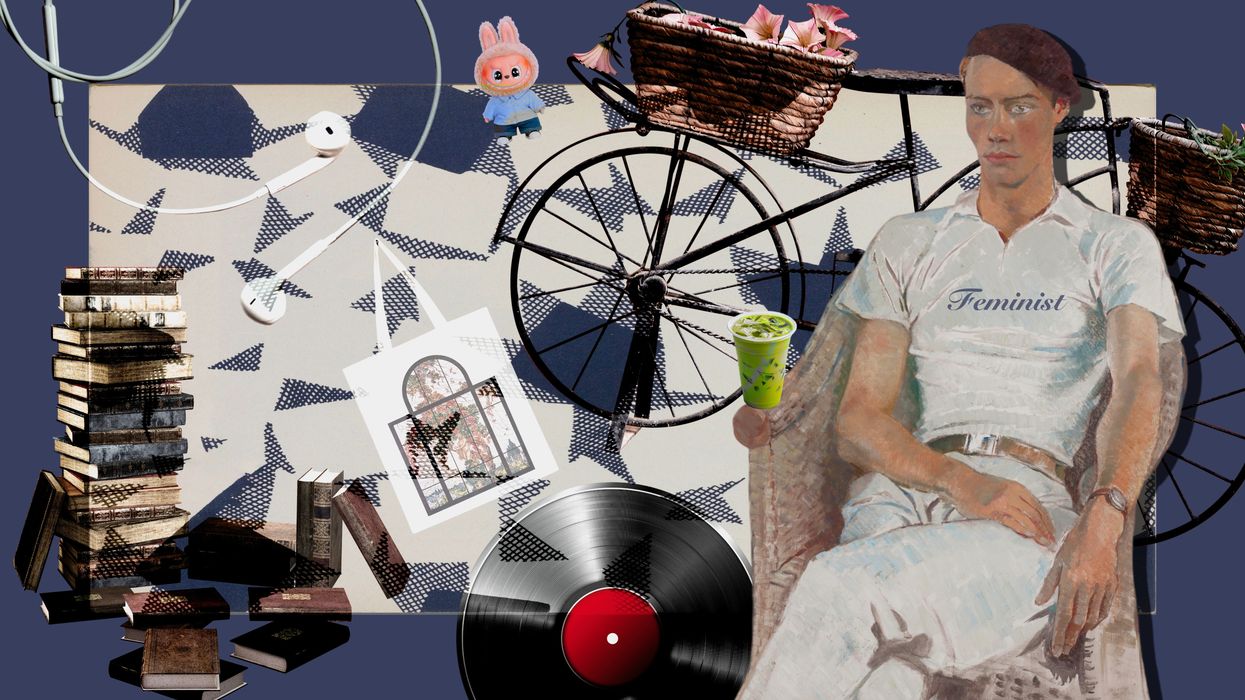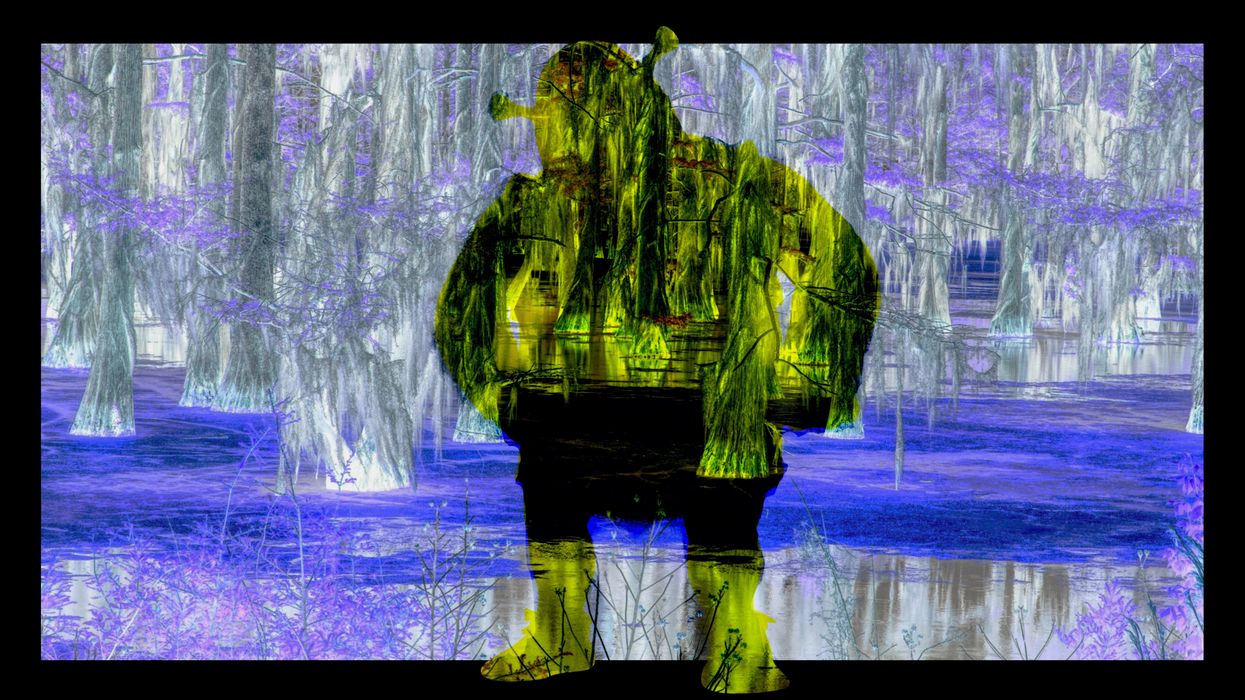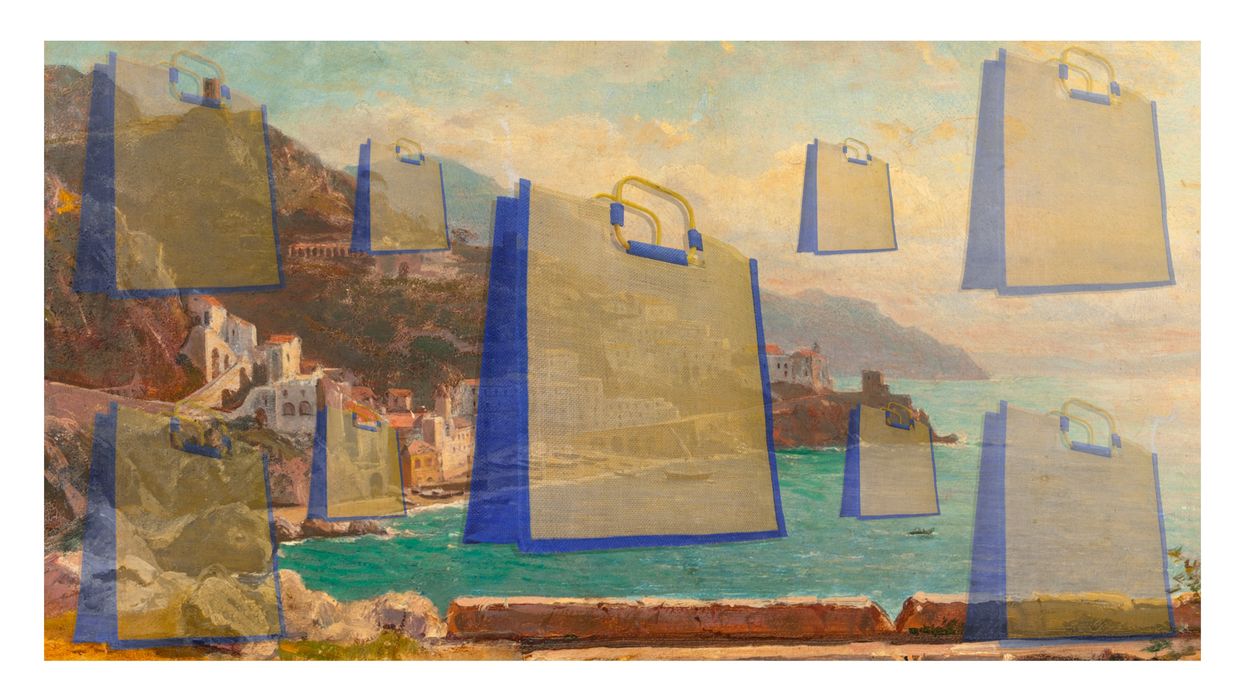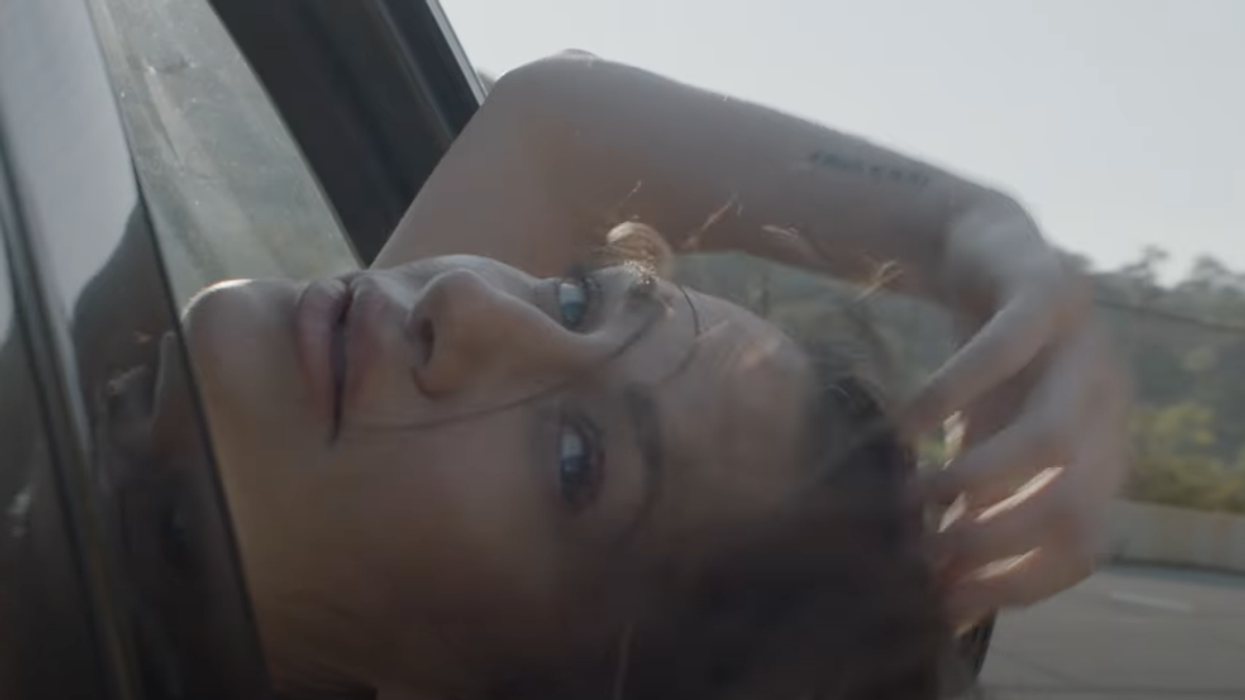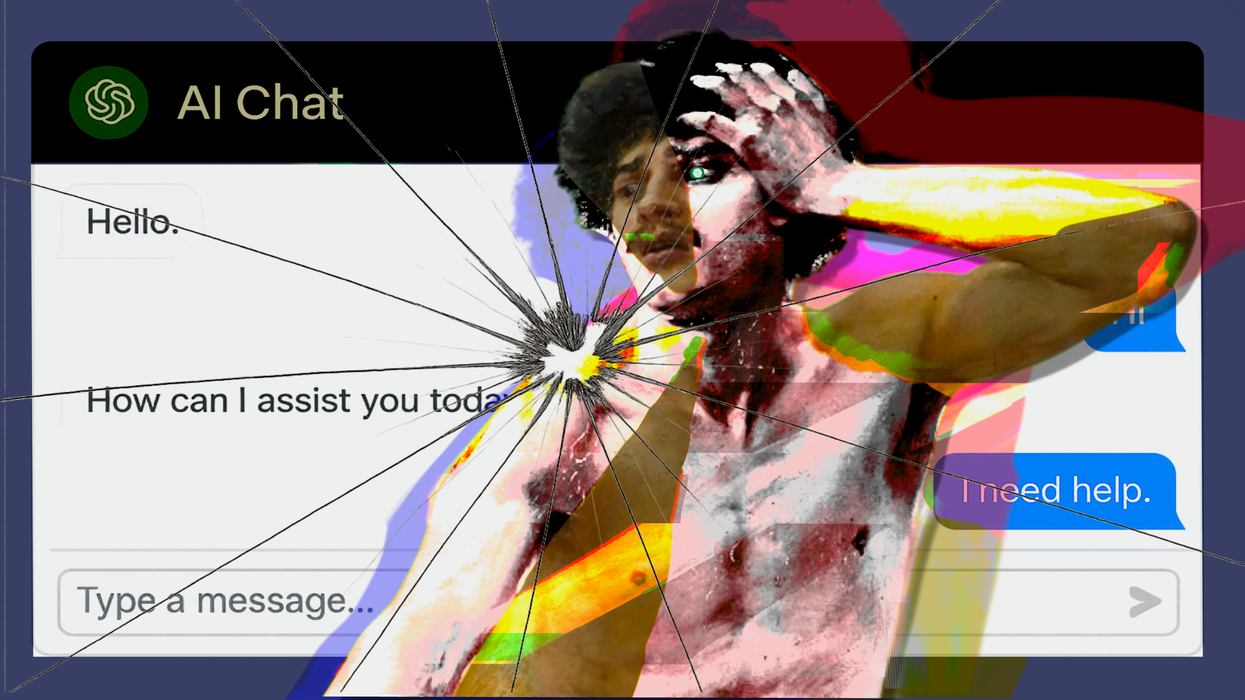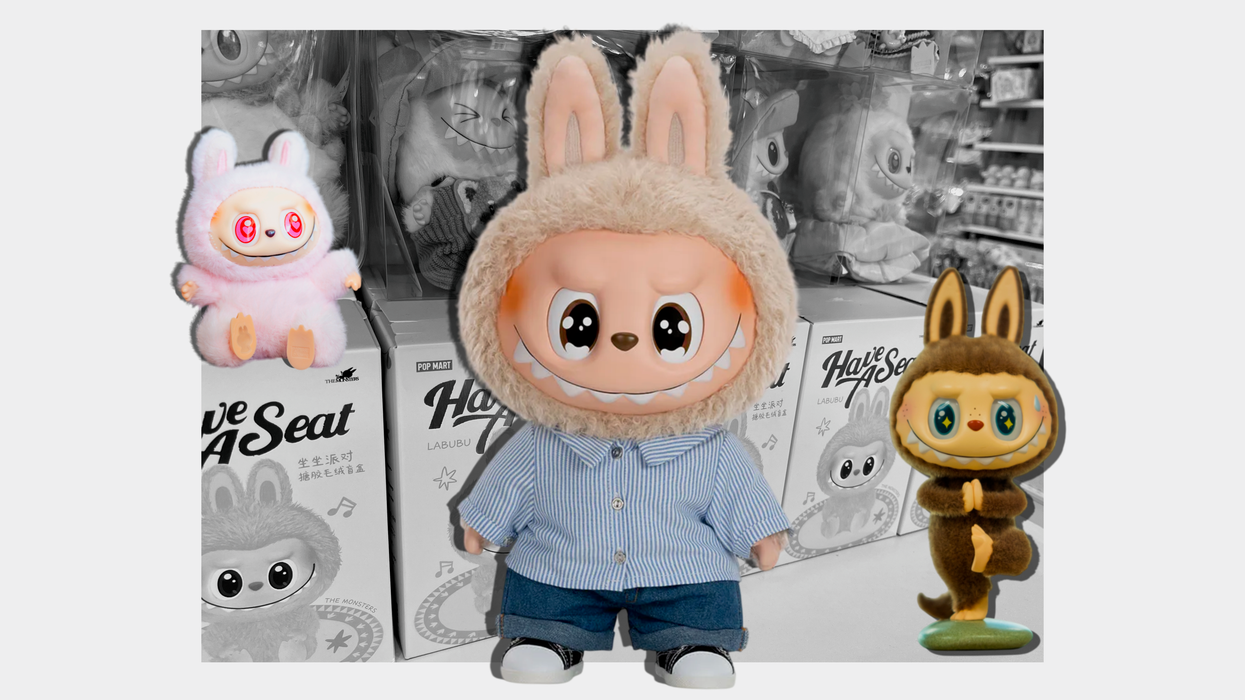Timothy Hokett’s eureka moment happened when his 4-year-old asked why Peppa Pig had a gun. It was May 2024, and the Dallas-based artist was still in his “pre-PAWS” period, where he’d work with chains, depict cops as pigs and paint on whipped black leather as a symbolic nod to the Black American experience. It was the kind of work the white cube could call “powerful,” “revolutionary” and “boundary-pushing,” but then why did “I feel like I might be painting the wrong message?,” he posits during our call. Maybe, it was all the labeling and the expectations, he says. Because the entire reason he entered the art world to begin with was to “be free, do exactly what I want, and enjoy every moment of it.”
Known simply as “Hokett,” the Philadelphia native has always been about “creating [his] own language” through his eye-catching “calligraffiti” pieces. Painting abstracted glyphs against swatches of vibrant colors, his current work combines pop culture symbolism with his bear-like “PAWS” characters, who participate in exceedingly ordinary activities like playing football, dressing up as Batman or watching television with their family on a Sunday.
As Hokett explains, his PAWS are part of a “contemporary art expansion,” where he’s trying to “break the mold and all labels” by being “all the same, while still being different.” They’re animals “destroying the divides that people create” by simply existing outside of the sociocultural and political divides of class, religion or race. They’re characters meant to convey the universality of simple joy, mirth and humor, proliferating a message of oneness and unity within a world divided by identity politics.
“PAWS aren't Black. They aren't any race. They are technically all one people, within one world,” he says, later adding that “you don’t say, ‘That’s a Kodiak bear from Alaska.’ You just say, ‘So what? That's a bear.’”
After all, Hokett has spent years watching artists tirelessly trying to create what they believe will sell or what critics want to see, and never for the better. More drawn to the oddly transgressive act of “having fun with my paintings,” he believes it’s important to be happy within an art world that fetishizes Black American generational trauma.
“I'm not painting no Black traumatic experiences, because that's not in my heart,” he says. “I don't even want [my work] to have a face. I'm always Black, but if I focus on that, then my work is ‘Black art.”
“But that's what's being celebrated,” as he explains, referencing both an African artist who built a slave ship and a piece using reclaimed gym flooring to comment on navigating social inequality.
“It’s like they enjoy the idea of knowing that we've suffered and they did not, because at the end of the day, we all have to take these things if people continue to push them upon us,” Hokett says.
He adds that it “pisses [him] off” only to see other Black artists “depict us like that,” mainly because it feels self-limiting, adding that his “impact does not and will not stop with Black people. It impacts all people.”
“But as soon as I'm labeled a ‘Black Artist,’ then the world automatically attempts to limit my reach and potential in the art world,” he continues, “And the entire world in general.”
That said, Hokett’s opinions on Blackness in the white cube is just the most personally relevant example of what he believes is a much larger problem plaguing contemporary art. As he puts it, the art world is full of people who “try to paint these intellectual ideas and talk about why they do this stuff” and, essentially, lose themselves while trying to create for others. But after spending years watching people “act like trained dogs,” who just “go ‘abstract, abstract, abstract,’” he’s convinced that “most artists don’t even like only painting abstract, but they do it because that's what sells.”
Needless to say, that doesn’t sit well with someone who’s spent his entire life “living in a space where everything is separate,” with Hokett adding that he’s tired of the “‘Oh, he's a calligraphy artist. He's an abstract artist,’” rhetoric.
“People can just label you, and then that's what you are,” he says, before pointing toward “Sundays Are For Family,” which is modeled after the Simpsons watching TV on the couch. It’s an emblematic PAWS piece with the exact message you’d think it’d contain, and that’s the beauty of PAWS, whose true function is simultaneously straightforward and nuanced in a world divided. Because as Hokett puts it, he strives to create work “with more longevity,” arguing that joy will outlive any talking point in the future world he’s currently trying to paint for his two children.
This profile is part of VEXT's ongoing series with Cohart, a social art marketplace for artists and art buyers.

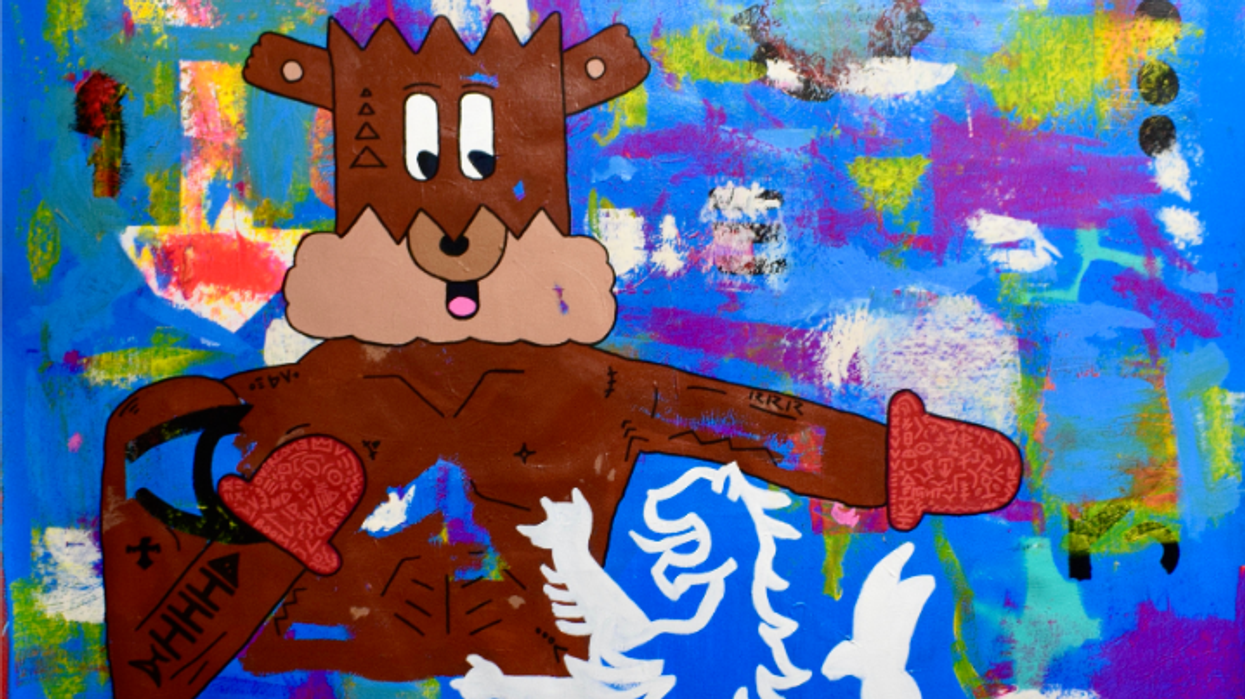
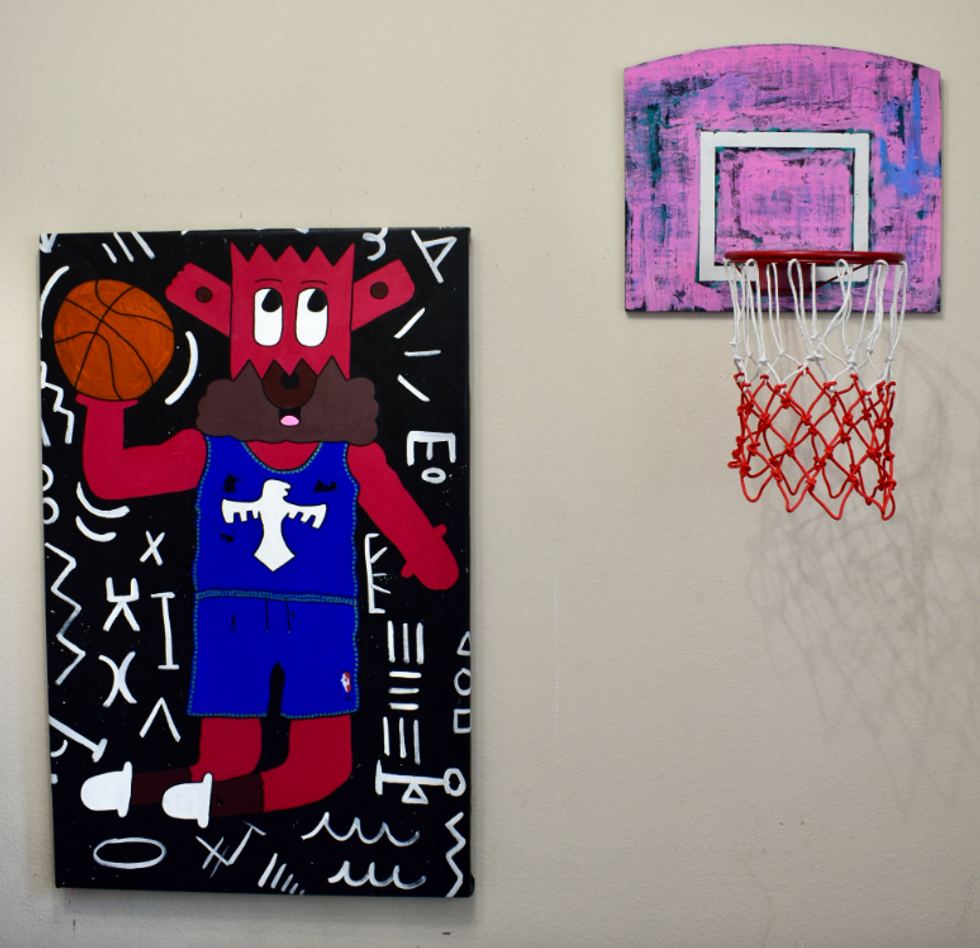
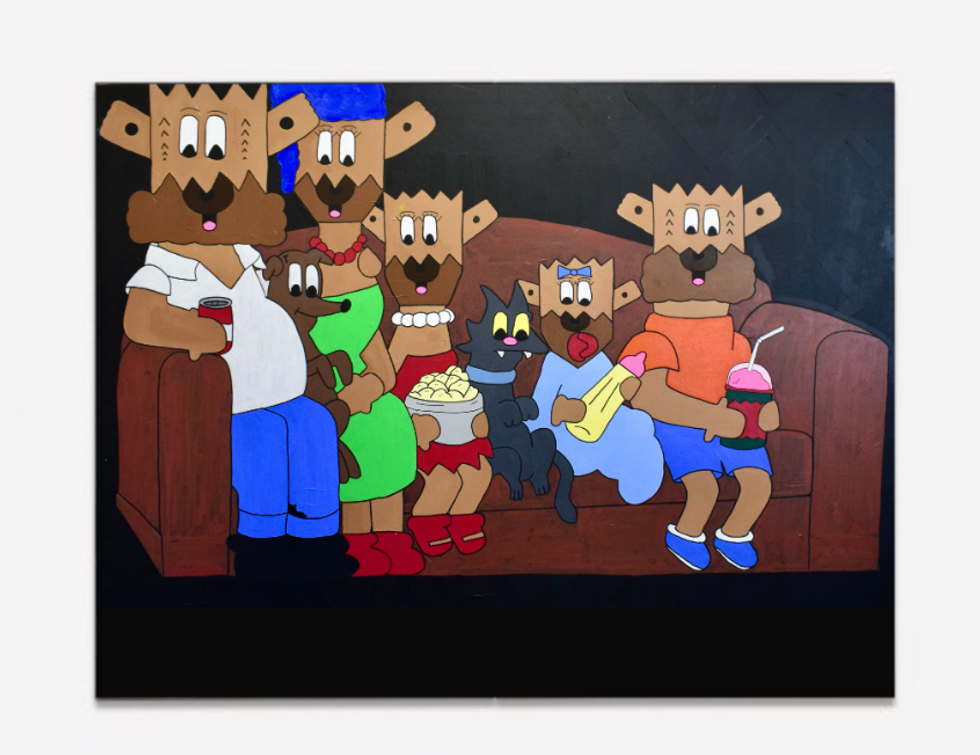
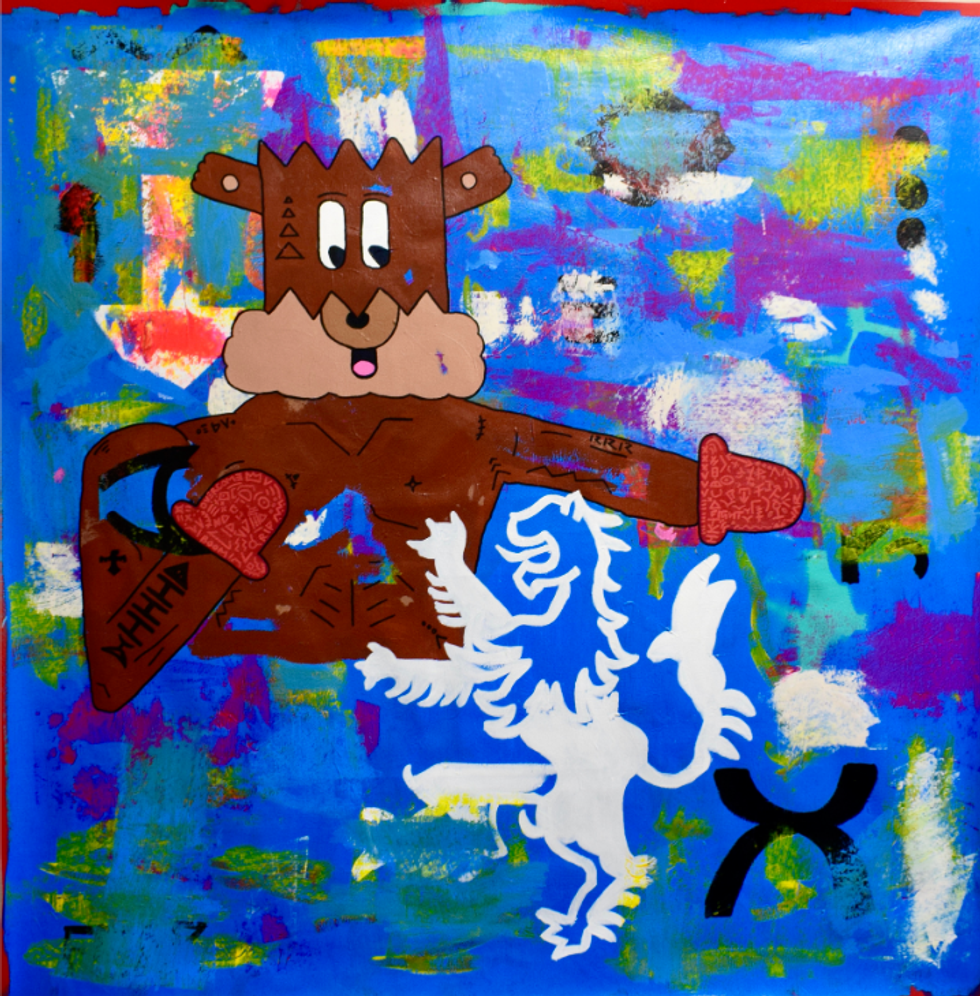
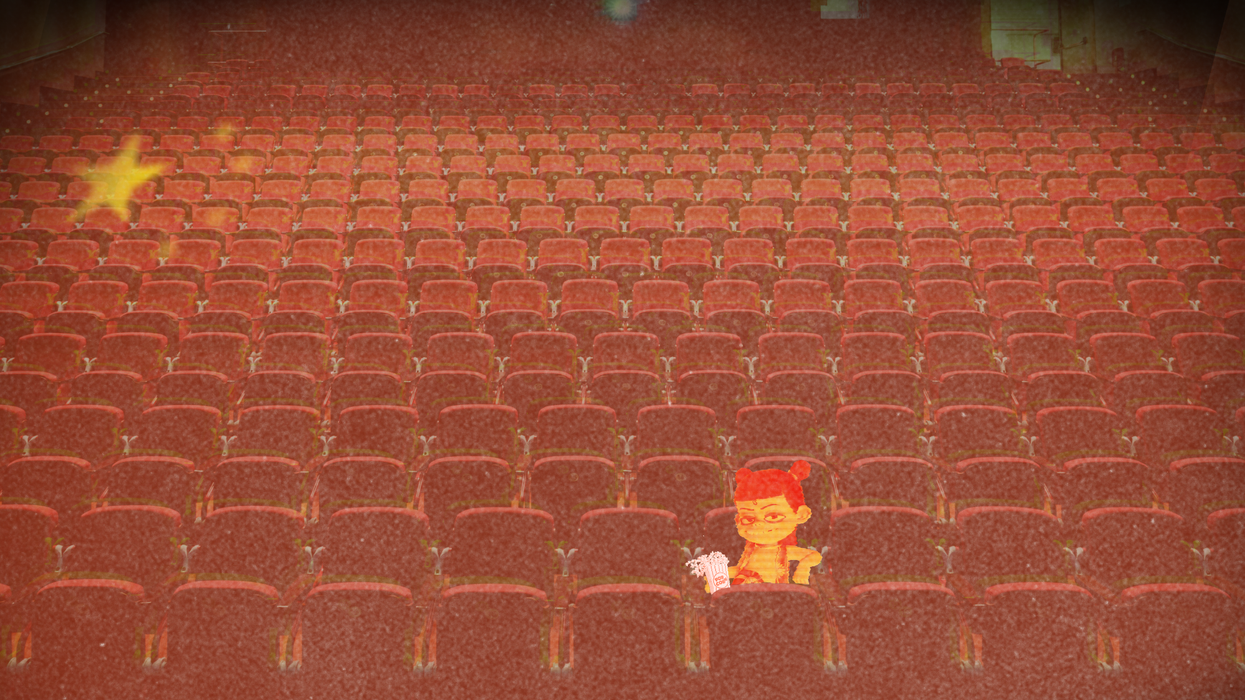
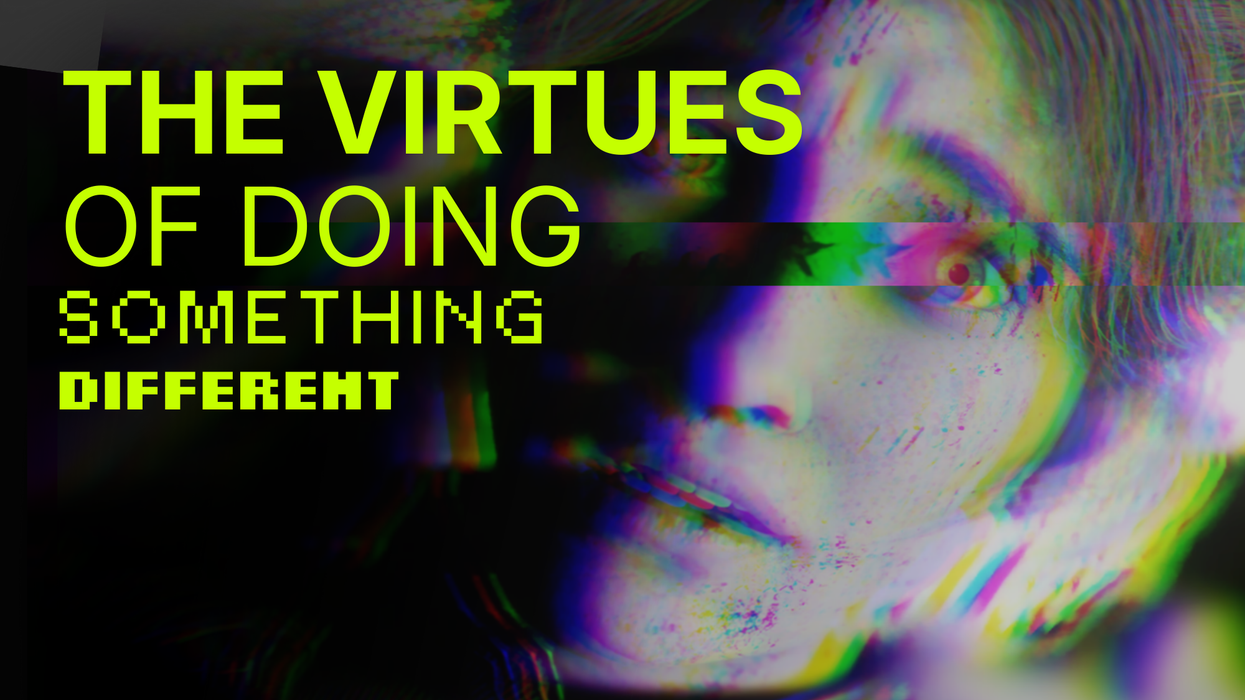
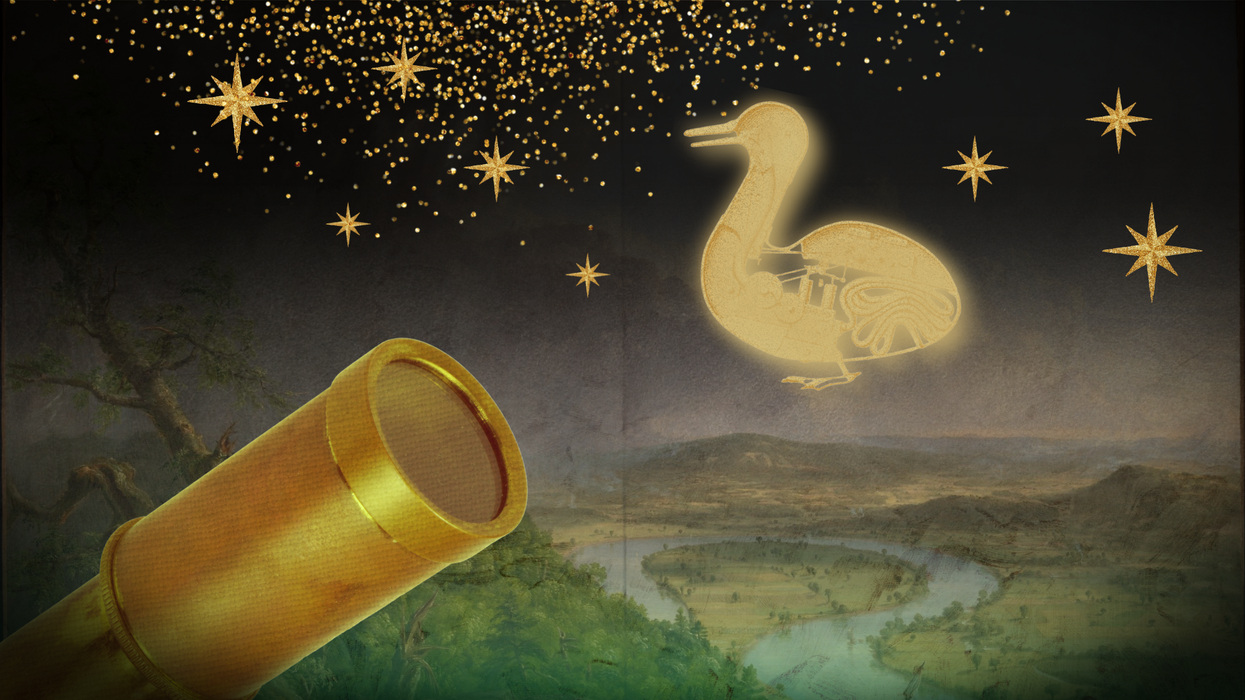

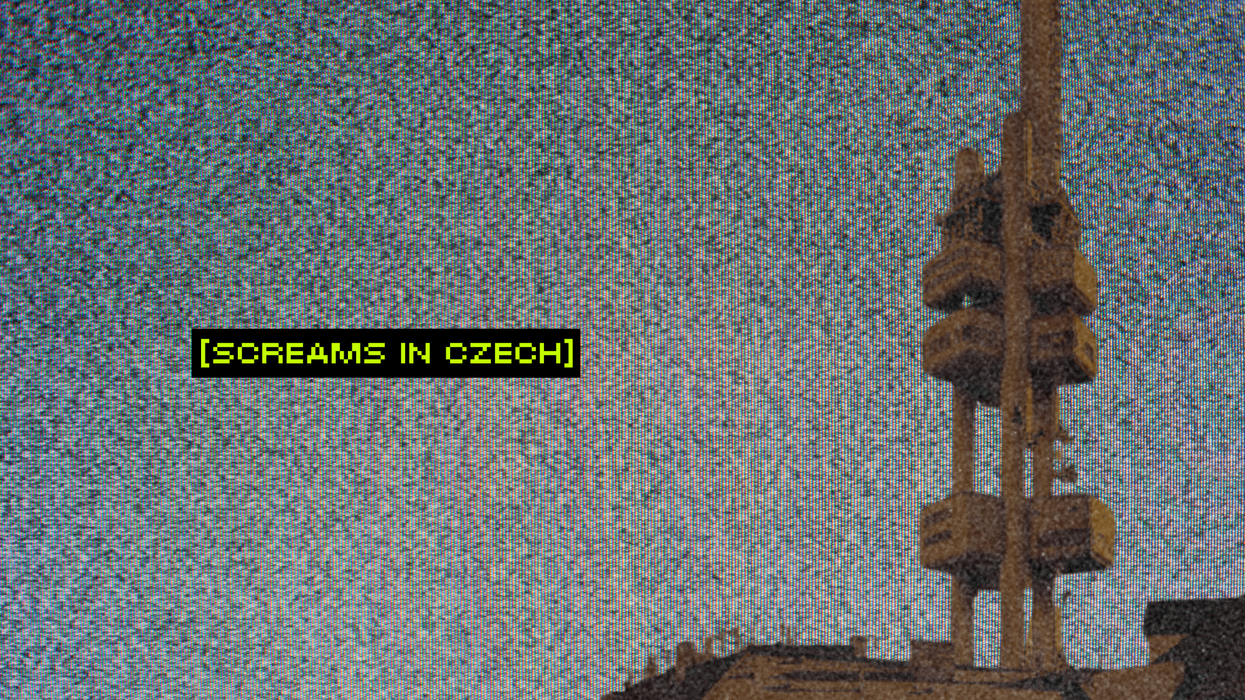
![[10/10] La Chimera: A Dreamlike Descent Into Grief, Memory and Myth](https://vextmagazine.com/media-library/image.png?id=61454821&width=1245&height=700&quality=90&coordinates=0%2C0%2C1%2C0)
